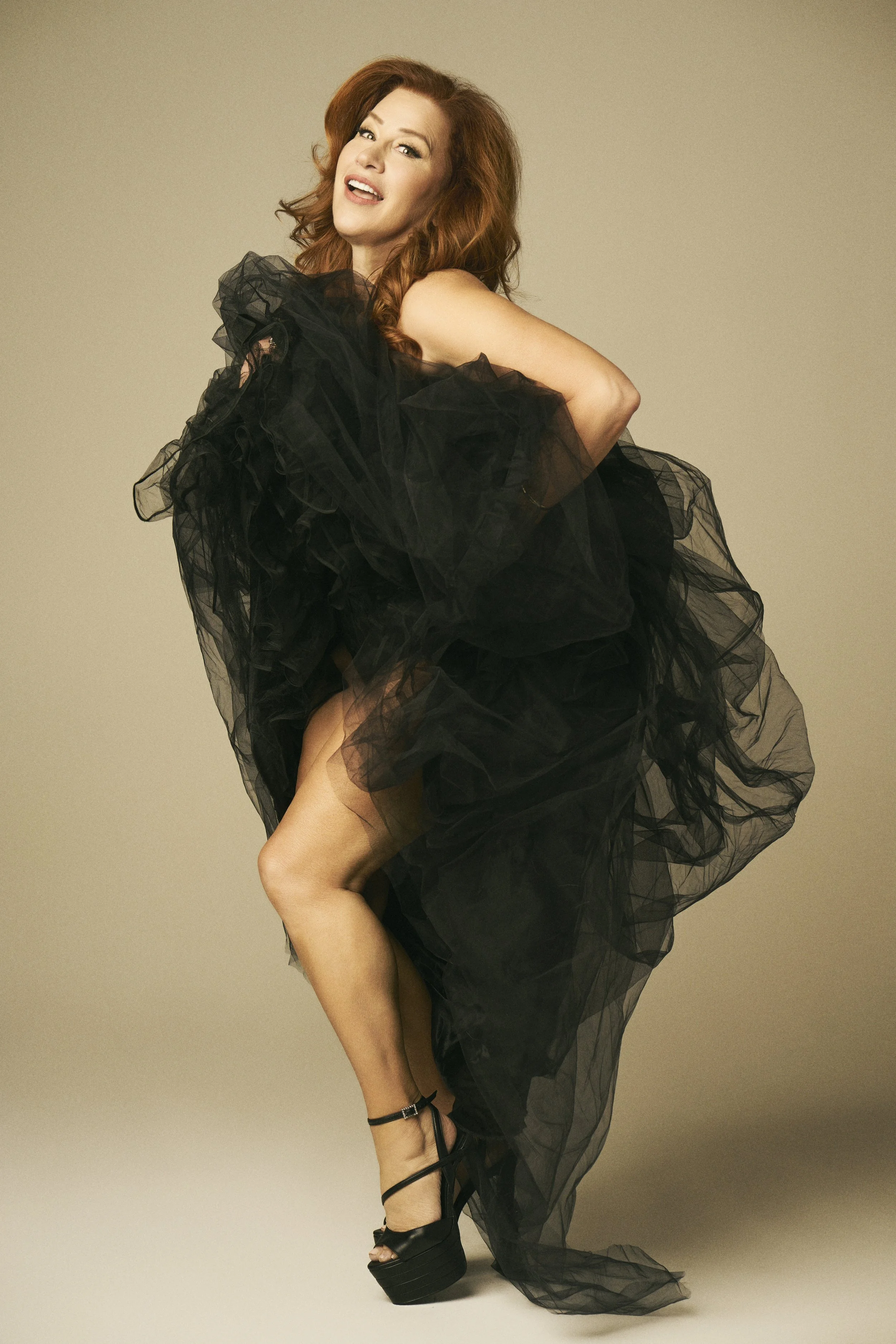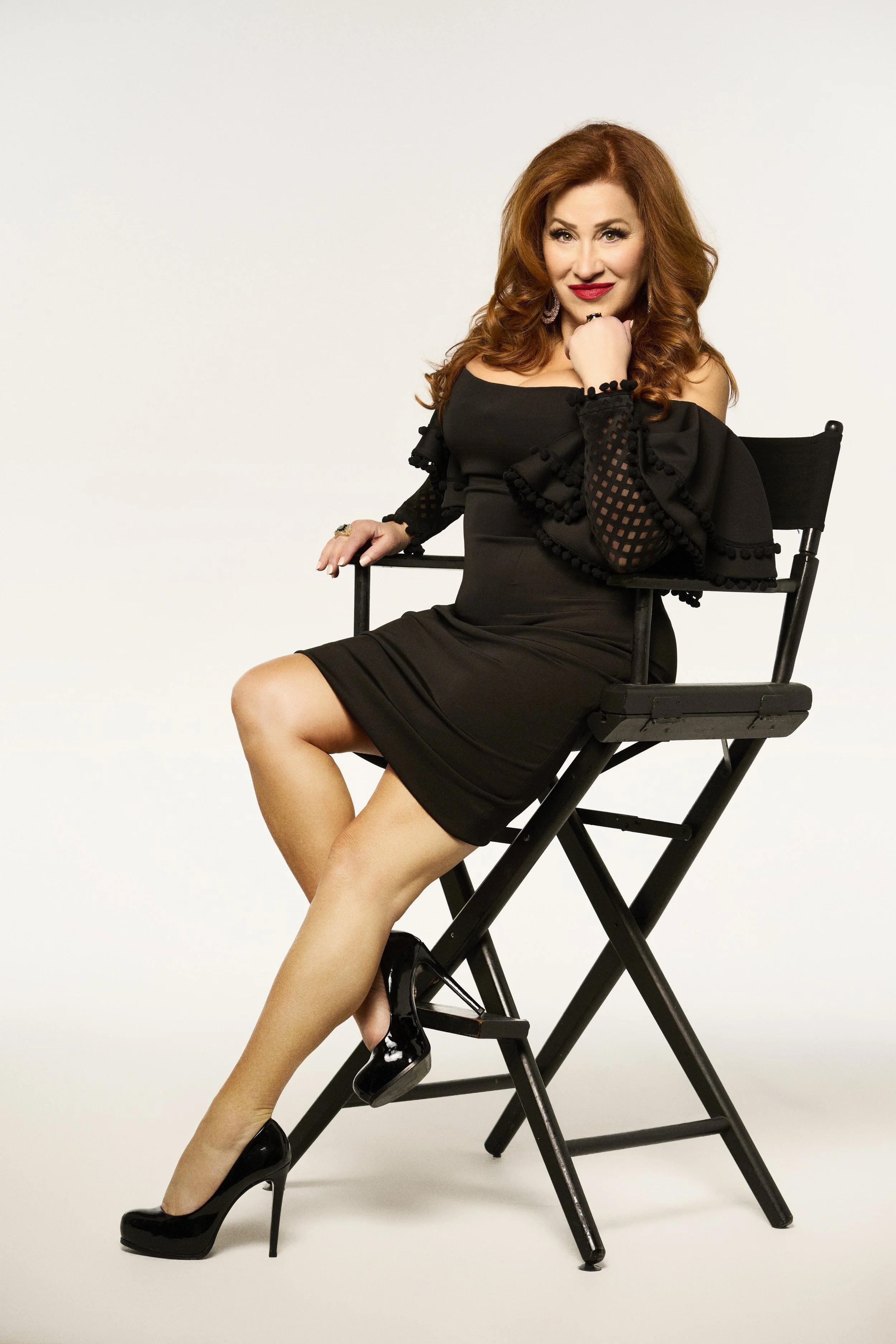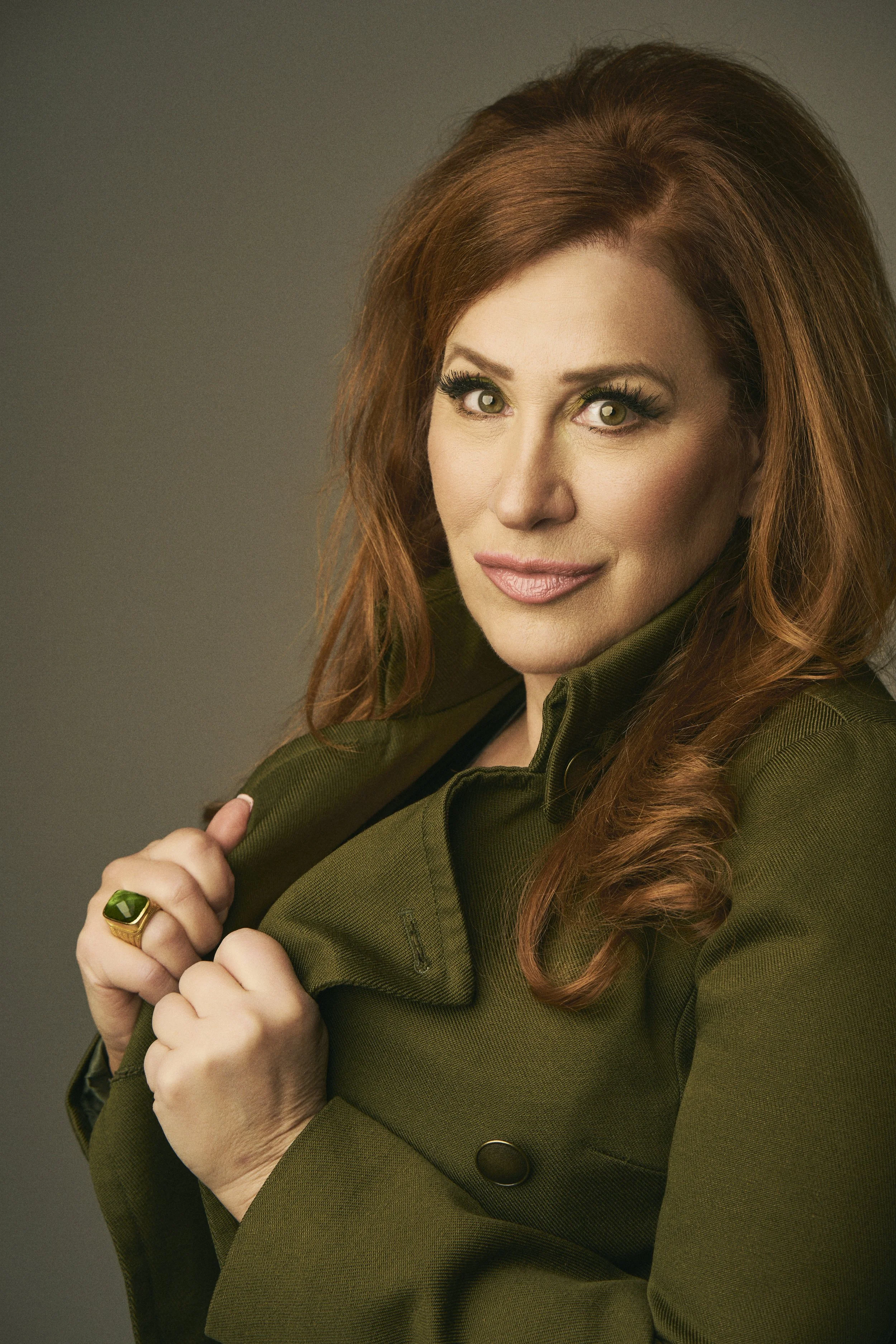Lisa Ann Walter: Versatility and Relentless Work Ethic
Entertainer extraordinaire Lisa Ann Walter has carved a remarkable path through television, film, and the stage, becoming a fixture in American comedy and drama. With a dynamic career that spans decades, Walter is currently captivating audiences as Melissa Schemmenti in ABC's #1 show, "Abbott Elementary." The Emmy-nominated, SAG Award-winning comedy series, created by Quinta Brunson, stands as a heartfelt tribute to the hardworking teachers and staff in our nation's schools, a world close to Walter's heart—as her mother was once a dedicated public school teacher in Washington, D.C.
Walter’s film career is studded with memorable roles, including her standout performance as Chessy in "The Parent Trap" alongside Dennis Quaid and her role as Bobbie in "Shall We Dance" opposite Richard Gere. She's also starred in blockbuster hits like "Bruce Almighty" with Jim Carrey and Jennifer Aniston, Spielberg's "War of the Worlds" featuring Tom Cruise, and the Lionsgate action-comedy "Killers," where she reveled in stunt-driving a Mustang and shooting a Glock with Ashton Kutcher.
Her versatility shines through with roles in films like "Drillbit Taylor," starring Owen Wilson, "Eddie" with Whoopi Goldberg, and "The Trouble with Dee Dee," a performance that earned her six Festival Best Actress Awards. On television, Walter's comedy genius led her to co-create, produce, and star in network sitcoms like Fox's "My Wildest Dreams" and ABC's "Life's Work," which garnered an average of 19 million viewers per week during its premiere season. Her creative prowess further extended to her single-camera series "Bitter" and the executive-produced "The More Things Change," a half-hour comedy about an everyday trans woman that debuted at Outfest 2019.
Behind the camera, Walter has flexed her creative muscles as a Creative Executive Producer and showrunner for top factual companies like 495 Productions, Magical Elves, and Propagate. She created and produced "Dance Your Ass Off," a hit dance/weight-loss competition series with record-breaking premieres on Oxygen, and the innovative female stunt/comedy web series "Gonzo Girlz," which attracted 6 million unique views per episode.
In addition to her on-screen accomplishments, Walter is an acclaimed author. Her comedic memoir, "The Best Thing About My Ass Is That It’s Behind Me," takes a humorous perspective on her journey through Hollywood’s size-0 culture, landing at #13 on the New York Times Comedic Essays Bestseller List.
However, amidst all her achievements, Lisa Ann Walter takes the most pride in balancing her thriving career with being a dedicated mom of four. As she juggles her roles with grace and humor, she muses that she keeps "one foot on the red carpet and the other at Costco"—a testament to her down-to-earth nature and unparalleled work-life balance. Today, we’re honored to feature Lisa Ann Walter on the cover of BELLA Magazine’s Arts and Culture issue, celebrating her vibrant career and unwavering passion for entertainment.
Join us for an in-depth conversation as we delve into her illustrious career, her thoughts on the evolving landscape of comedy and drama, and the personal drive behind her relentless success.
Early Inspirations.
Growing up, who were some of your biggest influences in the arts and culture sphere, and how did they shape your career aspirations?
I was allowed to stay up and watch the show “Laugh In”. I wasn’t supposed to be watching it, it was on VERY late for a kid that was five- or six-years-old (like nine or ten o’clock), but my father let me stay up and watch it because he was a big comedy fan. So, I watched the funny women of that time, Lily Tomin, Goldie Hawn, Ruth Buzzi, Jo Anne Worley, Judy Carne be hilarious, and it made me think, “This is something that could be a job. You could have a job being funny, as a woman.”
I said this to George Schlatter when I met him at a big party for him years later, I said, “This is what made me know I could have a career being funny as a woman” and he said, “In fact, being a woman helps.”
So it was them on Laugh-In, and also the female movie stars of the time, like Whoopi Goldberg, Goldie Hawn, Bette Midler, Dolly Parton, Lily Tomlin, Jane Fonda, all of those women who made me think, “This is something I could do. I want to do that, that looks fun.”
Career Evolution.
Your career spans acting, comedy, producing, and writing. How have you seen your artistic expression evolve over the years, and what has driven that evolution?
I started out as an actress, and that’s all I thought I would do. I thought I’d be a stage actress, if I was lucky, I’d become a repertory member of Arena Stage or the Guthrie or something fancy like that. I loved doing plays, I loved doing musicals. But when I moved to New York to be an actress, I got pregnant with my first child, and so I segued.
I had a friend who I went to Catholic University with to study acting, learning about the Greek Classics, and Shakespeare, a real dedicated sort of conservatory education, but there was also a big comedy boom happening at the time in New York City, and she said, “You should be doing this.”
So, I started putting together material about being a mom and having babies, and I was still so young. Compared to my college educated friends, having a baby that young was really unusual.
So, I started doing stand-up and developing that act, and that led to being offered to star in, and create television shows, and I had already been writing for stand-up and other things, so I started creating TV Shows and then unscripted series, and I’m back to acting on a series, but also continued to produce both unscripted and scripted television.
The thing that was important was that I never limited myself. I never said, “Oh you can’t do more than one thing,” or “What makes you think you’re going to be taken seriously,” or “I better just focus on THIS side of it” I just did ALL of it.
I say that to everybody. I started at a time when people couldn’t make an entire movie on their cell phone, but now they can, there’s no excuse NOT to do all of it.
Balancing Roles.
As someone who wears many hats in the entertainment industry, how do you balance these various roles, and what do you find most fulfilling about each one?
I love all of it. I don’t limit one for the other.
It’s so funny, because even though I’m on a show where for the first time in my entire career, I feel a modicum of safety because there’s enough money coming in that I don’t feel like I’m in a panic, always looking for, “What’s the job after this one,” it doesn’t matter. I still fill all my free time creating.
I went back to doing stand-up in the past year and a half/two years, and then did a comedy special for the same reason I started comedy in the first place, there were things that I feel compelled to say, I HAVE to say them. It is my responsibility as an artist to talk about certain things, but it’s also what gives me joy.
So the balancing act is really just trying to remember all the things that I have to do. That’s honestly what it is. The challenge is not forgetting meetings, and things that are important.
Iconic Characters.
You've played a variety of memorable characters throughout your career. Which role has been the most rewarding for you, and why?
There have been many that have been rewarding for different reasons.
A lot of people remember me and love me from, “The Parent Trap” so that carries its own kind of reward to be associated with a character that people feel safe with and love, and tell me literally every single day how much they love the movie, and how much they love me in the movie, and how they still feel such a deep connection with that character. There’s nothing more rewarding for an actor than to feel like you’ve been THAT important in the development of so many people’s lives.
A lot of LGBTQ+ kids have written me and told me that they felt safe and accepted by my character and that wasn’t even part of the movie, but they just felt like I would love them, no matter what. So, I try to respond to as many people as I can when they write me about that.
What I did with “Dance Your Ass Off” was incredibly rewarding because I had struggled my whole life with body image and with various eating disorders, and to be able to do a TV show that says to people, “Be the best version of yourself” and that “there isn’t some ‘magic number’ you have to be, just move and be happy” that was really rewarding as a creator.
I’m really proud of the television shows that I created, in particular “Life’s Work” on ABC, because I thought, and still think, that was the first show that actually explored the life of a working mother, the way it really is, not the four hours between a woman coming home with some briefcase and says, “Whoo! It was a bear at work today” and then the kids go to bed. Life takes place all day long, including your job.
The one that I really felt the proudest of, in terms of the execution and the job itself was, “Shall We Dance” which was a movie that was huge in Europe, it was not as big here, but it actually started the ballroom dance craze in this country. It was with Richard Gere and Jennifer Lopez, and I did an enormous amount of ballroom dance training, which is something I did coming up, I was a disco dancer, I taught at Arthur Murray all different ballroom styles, and I was so proud of the job that I did learning how to do those very difficult dances, and also the acting I did, which for a while Miramax had me positioned to be nominated for the Best Supporting Oscar, but then they ditched us for “Finding Neverland” (what the Hell?), but anyway, I was really proud of that as well.
And of course, there’s Melissa Schemmenti, can’t forget Melissa. It’s extremely rewarding to come into a character like that, at this stage in my career.
Cultural Impact.
In your opinion, how can arts and entertainment serve as powerful tools for social change and cultural awareness in today’s world?
Personally, because it’s what I do, and I also have seen it in action, humor is an incredibly compact, and effective way to get points across without being didactic. It’s great to do a story and have people just get what the message was without ham-fisting it, like “HERE’S THE MESSAGE”. It’s effective, it’s fun, I like we get to do it on Abbott, and I love that I get to do it with stand-up.
I always say the reason why the Court Jester was the most powerful person in court was because he was the one who could tell the truth, and the King wouldn’t kill him because he made it funny (well, USUALLY the King wouldn’t kill him).
Future Projects.
What upcoming projects are you most excited about and how do you see them contributing to your legacy in the arts and culture community?
For all the years that I did stand-up professionally (7 years) as my main job, as the breadwinner for our family, I stopped doing it when I came to Hollywood and started creating shows because I didn’t have time. Between the writer’s room, promoting the show, and starring in it, I was busy all the time, but I went back to it over the course of the years between jobs, and more recently every weekend that I could, and finally for the first time I did a comedy special. Actually, it was Sherly Lee Ralph’s idea, she produced it with me, and we directed it, and it was incredibly rewarding, it’s being edited now, and I’m really proud of it.
There’s also an unscripted series that is being developed as we speak, and I can’t wait for that to come out, but I can’t tell you what it’s about, but it’s with my bestie, Elaine Hendrix, from the Parent Trap.
Advice for Aspiring Artists.
What advice would you give to aspiring artists who want to make a meaningful impact in the arts and entertainment industry?
This is going to sound trite, and I don’t want to sound like I’m giving a BS answer of, “Be authentically yourself”, but that’s true.
If you spend all your time, writing a piece, shooting a movie/short, or having a proof of concept that you’re trying to sell, any time you create something with the idea of “here’s what they’re buying” just know this… Somewhere in Hollywood there’s a meeting going on, as we speak, where they’re all sitting down and deciding that whatever it is that they’re making now, that ‘everyone is buying’, “we’re not doing anymore of that, we’re going to do the complete opposite now.” So, you’re never going to be ahead of the game by doing that.
You stand a much better chance doing something that’s authentically you. Make it incredibly powerful, doing what Phoebe Waller Bridge did with “Fleabag” and just making your art.
The reason why I believe comics wind up selling shows, or having shows developed around “their voice” is because that is authentically them, it’s truth. It’s based on their personal experience, but also what they know makes America laugh, and then they can truthfully bring it to the marketplace and say, “I know this person, this is real” and it becomes something that’s relatable, because we can all recognize garbage and untruth.
Also, I have to say this, whenever people reach out and say, “You’re a famous actress, how do I become that?” like there’s a direct A-Z line, and there isn’t.
I didn’t know this show was going to happen at this phase of my life. Every other month I was going to give up and go find a house in Atlanta, and live near to my bestie Elaine, or try to find some other job.
There’s no direct line, and there’s no guarantee. You have to be willing to live with this as your goal, some kind of survival job, and you have to dedicate yourself to it and not giving up. That’s the only secret. You can’t give up, and you can’t start out as a star.
Go find a local theater and learn how to actually act, and you learn how to support the other departments, learn to respect costumes, and hair and make-up, and sets, and producing, and the stage manager, and everybody else who goes into making a production is important to it, and you have to learn those departments and respect them. Once you do that, AND you can act, then you move on to the next step.
Don’t go to Hollywood thinking, “I’m going to walk down Hollywood Blvd and someone’s going to see me in a tight outfit, and now I’m a star.” I’m not saying it never happens, I’m just saying you better not bank on it.
Photography by Ben Cope.




